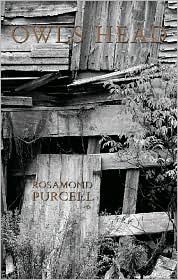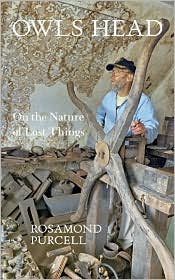This is the best book on objects I’ve read in a long time. I’m not deeply read in Object-Oriented Ontology (yet), but I think this gorgeous book on garbage has something we all need to listen to. Here’s Rosamond Purcell on books that have decayed almost — but not quite! — past recognition:
There must be some evidence of narrative inside these books. I get to work. The pages are delicate, sealed in clumps, with the hollows between webbed with chitinous shrouds. There is no way to penetrate the pages without destroying them. Inside is a story of organic processes unintended by any author. I peer into these transitional hollows where the elements have been traded — type for ash — and wherever such a translation occurs I search for some visible resolution of decay. I am examining this fulcrum of decrepitude as if it were a thing. Inside these small-scale caves I observe a process of dissolution that is going on, all the time, in the cosmos everywhere — from words to worms to stars. (185)
Owls Head tells the story of Rosamond Purcell’s twenty-year friendship with the junk dealer and eccentric William Buckminster through a series of explorations into Buckminster’s property near Rockland, Maine. The above description takes place in Purcell’s studio, where she’s prying into a shelf full of old books that had been left out in the rain for decades and which became, weathered and slumped together on the shelf, a post-textual artifact. But this kind of object — like all objects, in time? — is always temporary, always in the process not just of becoming some new thing, but also not-becoming — ceasing to be — the thing that it is.
I love the way this book makes us look at discarded things. “Who knew how Roman trash can be?” (116). Sometimes she uses lists, other times photographs in place of footnotes. She tries to give an order to the “bounty” she brings back from Buckminster’s land to her studio outside Boston —
I consider some of the museums that might appear in this room:
Museum of Obsolete Tools
Museum of Wires
Museum of the Croquet and Musket Ball
Museum of Natural Disasters
Museum of Ruined Landscapes
Museum of Failed Attempts
Museum of Filthy MailMuseum of Bisected Objects
Museum of Corrosion (142)
It’s hard sometimes to know what to make of this collection of brilliance and waste. The reader sometimes feels like Purcells’s friend Margary, invited up to Owls Head for some weekend antiquing, in the hope that she will “find something she might like.”
“Wonderful array of frying pans,” she said politely on the first floor of the barn, as I shone a flashlight into the rafters; “terrifying chaos,” she said on the drive home. (122)


Leave a Reply